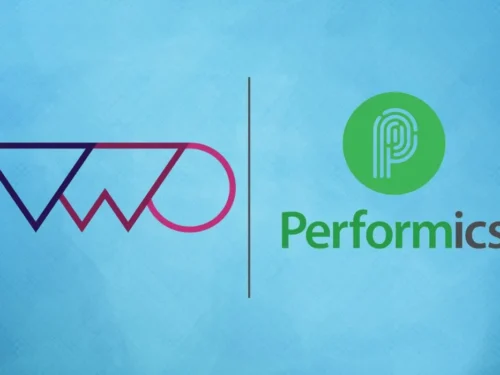Advertisers Perception Survey: Publishers Positive About Policy Changes
Some publishers are constantly criticizing the changes made in Google ad policies. Although, according to Advertisers Perception Survey of the SSPs, the new policies don’t hurt the publishers in any practical manner.
The report included more than 150 digital ad sales and operational professionals. These websites include approximately 3 million visitors per month.
With Google ad policies switching to the first-price auction, nearly 4% of publishers claim that they are negatively impacted. Around 47% states that they see a positive change in business with the change in policies. Whereas, 43% states that it won’t change anything.
Similarly, Google ad policies changed the rules for unified pricing recently. A similar ratio of 4% of publishers saw negative impacts on business. 30% of publishers found the change appealing and experienced growth. Rest of publishers felt that the change won’t affect their business.
Advertiser Perceptions President and Chief Strategy Officer Kevin Mannion said: “Publishers tend to view [Google] with a white hat.” Publishers trust Google due to its innovative approach, end-to-end integration, and for the constant updates/access provided to the Adx demand pool.
Google ad managers demand is continuously increasing among its user. The reports of the third quarter from last year show the strengthening hold and leap in the position of Google in the market.
“Google is more dominant here than in any other ad tech category,” said Mannion.
Google ad manager and Amazon Publisher services compared on the bases of their fondness.
Almost 60% of publishers preferred Google while only 12% were in favour of Amazon.
The other preferred top 10 SSPs like OpenX, SpotX and Verizon media managed with a share of 3% to 6% publishers who think these solutions are the best.
When it came to the user database, Google Ad manager share was the largest at 81%. Around 46% claimed to be using Amazon Publisher Service. The other 14 SSPs have a portion of nearly 11% to 35% of the publishers who were reviewed.
Google locks up its spot of being the finest due to its technological progression. As per 78% of publishers, they pick Google due to “superior technology position.”
Since last year Google’s stature has increased among its publishers. Now, 90% of publishers think that Google Ad manager is a better solution, as compared to 79% last year.
Preference of SSPs among large to medium publishers.
Publishers are differentiated among large, medium and small publishers based on their user database. Google Ad Manager and Amazon Publisher services are preferred among all scale of publishers.
Publishers get compared on the basis of large and medium publishers. The results of the survey made by Advertiser Perceptions of SSPs highlighted some important influential factors.
To understand the working of stacking, and ranking of SSPs based on their popularity, let us take an example of Index exchange.
Index Exchange ranked third among all users. Nearly, 44% of large publishers are using it. Being popular with 44% of large scale publishers is extremely wonderful. However, it’s less preferable among small publishers(14%).
This leads Index Exchange to the third position of the stack.
Verizon media was ranked seventh among the large publishers, whereas it was ranked fourth among the small publishers.
There are other factors that can decide the ranking of SSPs.
Small publishers are those who have less than 20 million unique visitors. Small publishers use nearly 4 SSPs. However, any large publisher with more than 20 million unique visitors uses 6 SSPs.
Rebranding product can cost the user database.
Rebranding the product is not easy, as brands develop with time slowly earning their status in the market.
An example of a brand losing its popularity with rebranding can be seen by observing the decision of Verizon Media. Verizon Media rebranding Oath Media cost a massive loss of user database.
Similarly, AppNexus rebranding itself to Xandr Monetize has seen a tremendous loss of publishers. From 43% it came down to 19%.
Mansion said, “Verizon media is on a rebound.” People perception towards it is improving. There is a net 10 to 20% increase in its market leadership and its technology vision respectively.
OpenX also fell 11 points for its technical superiority. This year OpenX has lost nearly half of its users who thought that it is a market leader. The percentage decreased to just 36%. OpenX is the third most likeable solution according to the report.
This has nothing to do with the factor of rebranding.
Pre-pandemic point of view.
This survey took place in February, which was the starting of COVID pandemic.
During the epidemic users demands from the SSPs for the innovation has increased. The market is reshaping itself, publishers are appealing to SSPs to step up and portray cleaner advertising.
Publishers want to SSPs to work on the following factors:
- Bad ad troubleshooting – 64% of publishers view this as crucial.
- Prevention of counter-fitted inventory via ads -64% considered this crucial.
- Blocking of fraudulent traffic- 68% publisher demands it as a crucial step.
“Publishers tell us that they aim at zero tolerance for fraud and bad ads,” Mannion said. “They want their SSPs to be their trusted partners toward that end.”
Author Profile
Latest Posts
 BlogApril 4, 2023How to rank well on Amazon? Performing SEO on Amazon
BlogApril 4, 2023How to rank well on Amazon? Performing SEO on Amazon BlogFebruary 2, 2023Advertise Your Brand in the Metaverse: The Future of Digital Advertising
BlogFebruary 2, 2023Advertise Your Brand in the Metaverse: The Future of Digital Advertising MediaJanuary 25, 2023Disney+ Is All Set To Lure Advertisers And Enhance Options For User Targeting.
MediaJanuary 25, 2023Disney+ Is All Set To Lure Advertisers And Enhance Options For User Targeting. MediaJune 26, 2021Success Story Of First Programmatic Campaign In Gulf!
MediaJune 26, 2021Success Story Of First Programmatic Campaign In Gulf!










